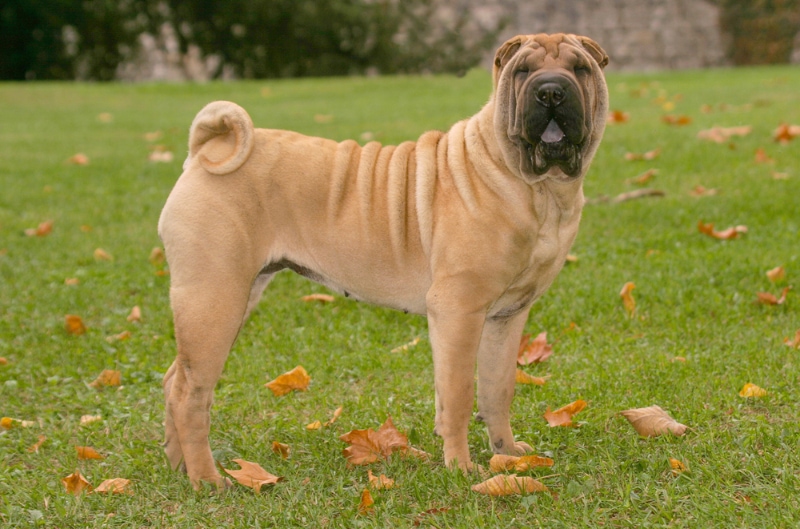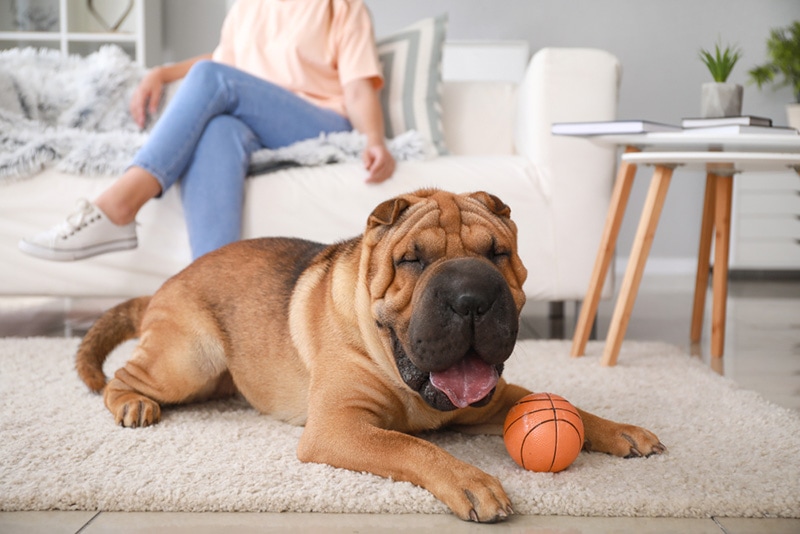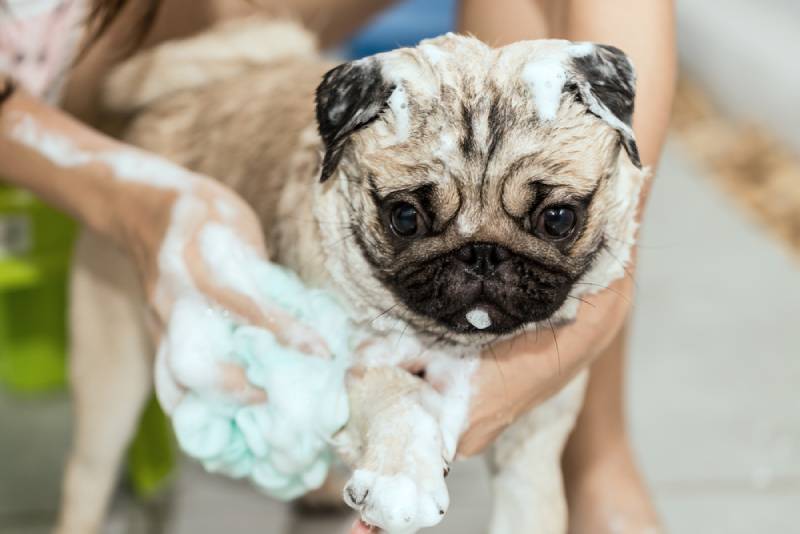Is a Shar Pei Hypoallergenic? Vet Reviewed Facts
Updated on

Click to Skip Ahead
Allergies are a big problem for many people, and often, our allergic sensitivities are triggered by dogs and other animals. This can lead to uncomfortable and distressing physical problems that may prevent people from owning a dog they would otherwise love to have.
However, given around 45% of American households already own a dog,1 allergies have become a real topic of discussion. According to the Asthma and Allergy Foundation of America, 10-20% of the world’s population are allergic to dogs and cats.2 So, when the term “hypoallergenic dog” is thrown around and used as the answer to being able to have a dog even if you are allergic or sensitive to them, it can feel like winning the jackpot. A hypoallergenic dog is seemingly the perfect answer, right?
Numerous dog breeds are being categorized as “hypoallergenic,” and the Shar Pei is often a desired pet, with all those wrinkles and extra loose skin luring people into wanting to own one of these cute-looking dogs. However, Shar Peis are, unfortunately, not hypoallergenic. In fact, there is no such thing as a hypoallergenic dog at all.
About the Shar Pei
Shar Pei dogs are a Chinese breed originating around 2,000 years ago. They were initially bred for hunting and herding livestock, but unfortunately were also used for fighting. They are easily recognizable due to their compact size and loose skin that creates an abundance of wrinkles and skin folds. The excessive number of wrinkles and skin may make them look adorable and cuddly, but these folds were created as a useful tool that made it difficult for their fighting opponent to be able to get a good hold on them.
Today, Shar Peis have become loyal and domesticated dogs, albeit they require the proper training, socialization, and care in order to behave well and correctly around people, other dogs, and animals. They are noted as being a better option for experienced dog owners, and they are not the ideal pet to have around children, especially left unsupervised. You may also find that Shar Peis are aloof and reserved around strangers while being very prone to skin and eye issues.
However, these dogs are affectionate, devoted, and loyal to their families and owners. They weigh in at around 45–60 pounds and can live up to approximately 11 years old. With all that in mind, though, how do we know for sure that they aren’t hypoallergenic?

What Does “Hypoallergenic” Mean?
“Hypoallergenic” simply implies that something is designed or made to minimize and/or reduce allergic responses, as the said product usually contains none or few irritants that typically trigger allergic reactions.
So, where does the term hypoallergenic fit into dog breeds? To start with, it’s a common misnomer that pet allergies are triggered by pet hair. Instead, humans that are allergic to dogs and cats are actually allergic to a protein that is found in the saliva, urine and dead skin cells. One of the best ways for these proteins to move around and come in contact with humans is by the dead skin cells hitching a ride on the shed hair. Therefore, dogs that shed more, typically elicit more of an allergic reaction in people with pet allergies.
Are Shar Peis Hypoallergenic?
No! The hypoallergenic dog breeds are a bit of a myth and misunderstood. No dog is 100% hypoallergenic as all dogs produce these proteins, and all breeds shed hair. Even breeds that are classed as non-shedding lose hair. The difference is that in some breeds, the hair that is released to be shed is actually intertwined into their coat and groomed out, rather than falling out and spreading around in the environment.
Some dog breeds may have thinner or shorter hair coats that don’t produce as much shed hair, which can make them better tolerated by people with allergies. Shar Peis are somewhere in the middle of excessive shedders and low shedders. They tend to shed a moderate amount, especially during the spring and fall. This means that a Shar Pei may aggravate your allergies. If you have any questions about this, contact your doctor for the best advice.

Conclusion
The Shar Pei may look cute and inviting, but sadly, they are not hypoallergenic. No dog actually is. If you have your heart set on owning a Shar Pei, speak to your doctor to determine if this is the right fit for you and your allergies.
Featured Image Credit: Ricantimages, Shutterstock












